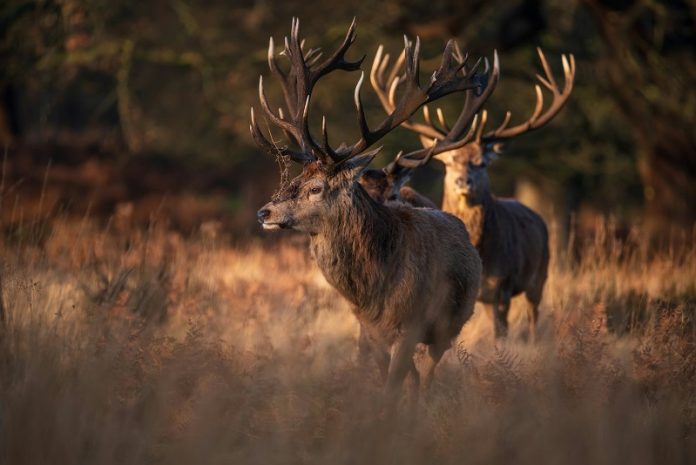
New research reveals that animals, like humans, change their social behavior as they get older.
A collection of 16 studies, including several from the University of Leeds, explores how aging impacts social interactions in animals.
This special edition of Philosophical Transactions of the Royal Society B examines how different species adapt their social habits as they age and what this means for their health and survival.
One study on red deer found that as female deer age, they become less social.
The researchers suggest that these older deer are trying to reduce competition and avoid picking up parasites. The study used data from a long-term project on the wild deer population on the Scottish island of Rum.
Dr. Josh Firth from the University of Leeds, who helped edit the special issue, explained that “social aging” (becoming less social with age) isn’t necessarily a bad thing. In fact, it might help older animals avoid risks like infection. He compared this to older humans who limited social contact during the COVID-19 pandemic to stay safe.
Another study looked at the social behavior of house sparrows.
As sparrows age, they tend to have fewer social connections. This decline in friendships may be due to their peers dying or because older sparrows find it harder to make new connections.
Dr. Jamie Dunning, a researcher in the study, explained that younger sparrows depend on social ties for important things like reproduction, but the benefits may not be as crucial for older birds.
The special edition, which involved researchers from around the world, explored how aging and social changes occur in many different species.
According to Dr. Greg Albery from Trinity College Dublin, understanding how animals age in their societies could help us better understand aging in humans.
The research also explored social aging in insects, particularly fruit flies. Professor Amanda Bretman noted that a poor social environment can impact animals’ health and lifespan, just like in humans. Her team’s review showed that even simple insects are affected by their social surroundings. They found that the sex of an insect, the social environment during development, and the age of social partners all play roles in how aging happens.
By studying these changes in animals, scientists aim to learn more about how aging impacts societies and what might help improve aging for humans. Dr. Firth emphasized that animal studies are crucial for understanding the fundamental principles of aging.
These findings highlight the similarities between how animals and humans adapt socially as they age and how these adaptations might help both avoid risks and maintain health.
Source: University of Leeds.



